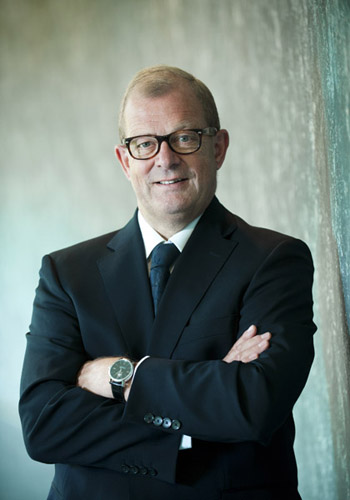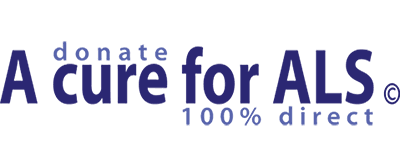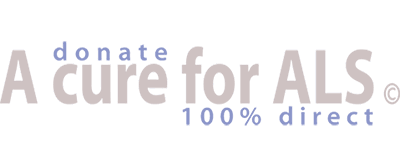Interview with Leo Neels (pharma.be)
21-09-2012
ALS Liga spoke with Leo Neels, CEO of pharma.be
ALS Liga asked Leo Neels about his opinion on the development of those medications pALS are waiting, and especially hoping, for. We would like to thank Mr Neels for this clear and pleasant conversation.

ALS Liga: We know that the development of medications has to go through a number of fixed stages. pALS have noticed that such efforts are often abandoned in the second stage, which is very disappointing for them. They remain dependent on care for their quality of life, which is the objective of ALS Liga. What is happening in the field of development and can the government speed things up, as the Minister for Innovation Lieten for example has tried to do with a raise in budget?
Leo Neels: Firstly, I would like to express my suspicion of government action. The political message that everything from now on will happen faster, shorter, and cheaper is at odds with all indicators of scientific nature. We have sobered up after a period of great optimism in 2003 – 9 years ago- when the complete composition of DNA was discovered. They often thought it was a goldmine. The chemical approach that had been explored successfully in the sixty years before, would deliver less and less, but these new insights and the knowledge of genetics would generate even more successes. This optimism did not last long, because they had severely underestimated the complexity of the human metabolism.
When I tried to understand the physicists and geneticists, I constantly heard things that amazed me. Those who were excited about the goldmine that was ready to be explored, turned out to be naive. My shared enthusiasm too proved to be premature, when not that long ago I heard different stories.
I still believed that physicists knew every last particle, until I discovered that their knowledge of the matter only amounts to 4%, while the other 96% still remained to be explored. Let me give an example. In her recent interviews about her life’s work in the field of dementia, Christine Van Broeckhoven said: “I have been doing research for the past forty years and our knowledge has been greatly enhanced. However, we do not yet sufficiently know the reason why Mr or Mrs A will develop dementia, having more or less the same metabolism and the same DNA characteristics known to us as Mr/Mrs B or C, who does not have dementia. We ... almost know it.” But she continues: “A cure for dementia? Maybe in thirty or forty years time, if I’m being optimistic today.” So if someone like Christine Van Broeckhoven –with all her earned awards- now says: “We are close, but the more we know, the more we realise there are things we do not yet know, because we can see the connections that we still have to examine.”
Back to minister Lieten. She puts her faith in translational research to eliminate the delays we encountered in the past. The distance between the university researcher who conducts the ‘basic research’ and the pharmaceutical sector that develops, tests and finally markets the medications is too long. The so-called ‘translational research’ strives to shorten the distance between fundamental laboratorial research, the development of medications and the patient. Research will then no longer, or at least to a lesser degree, be conducted in the sterile surroundings of ‘clinical trials’, but instead in a clinical office with real patients.
Obviously this should happen in a correct and ethical way. Still you immediately become aware of thousands of possible ethical questions that appear with this kind of ‘trial and error’ method, in which clinical treatments are directly put into practice. If research would be conducted in this way, what would happen if the results were negative? The patient’s wife could say: “But professor, this is not what we expected, we thought it would help, it failed and I will file a complaint.” This way, we create new problems within the ethical domain that will have legal implications we have never before experienced. What will a patient’s signature with which he gave his permission, be worth? Some argue that if we were to work in this way, such issues would be adequately resolved. Still, we need to realise that a similar method is currently being utilized in the field of oncology, which takes place in a serene ethical and responsible environment. The hypothesis, however, is somewhat different for ALS. In oncology, you are actually dealing with the final phase of life, which is different from ALS where life expectancy is sometimes estimated at three to five years, as opposed to a couple of months within oncology.
In the department of oncology, we are familiar with translational research. Here the physician shares his assessment of a possible procedure with the patient and his family and is able to obtain a written consent. But what can I, as researcher, offer patients in this context. They are still testing because they do not know what the result will be. Can it offer pALS a meaningful increase of life expectancy of a few months? If the pALS and his family would ask for the alternatives, would the researcher have to say: “handing over the patient”?
While nowadays we see that pALS, fortunately, are willing to cooperate with experiments without guarantees, because the researcher still has nothing. Other pALS will choose to keep on living with a higher quality of life. In some ways it is a fatal choice for both groups of pALS. I learned a lot about this while reading The Memory Chalet by Tony Judt. Judt was an eminent British historian who wrote another book called Ill Fares The Country, in which he describes the social democracy we use too carelessly. But in The Memory Chalet Judt describes how, in the final phase of ALS, he is put to bed and endures through the night, powerless. Meanwhile, in his thoughts, he composes a book about his own life, which he later dictates.
It has left a powerful impression on me, and I associate it with all pALS who are as it were prisoners in their own body, but regardless still find the strength to live on courageously. My reaction to this is: “all right Neels, you can learn something from this.”
Let’s go back to research. New funding by the Flemish government is good, but we had already expected this funding a year ago in the centre for medical innovation in research with cells and tissues. So please no political sale pitches now. Things do not happen quickly and communication about it is unpleasant. I wish things were different, like Dr Paul Janssens, for example, who used to ask his employees in Beerse every morning: “What have we discovered today?” He has seen at least 50 medications being developed in his lifetime! Now the good news is that scientists and pharmaceutical companies are not discouraged and are continuing their efforts in research. In this respect they are like pALS who continue to hope, but who today are only offered things to make their life more agreeable.
We might live in a society that requires constant announcements of good news, but in the field of research into ALS, the reality is different. We are now about to say which protein manages what, and where a certain condition is triggered or not. This is followed by the next stage: what is the correct strategy to intervene in this faulty process? Then we need a strategy to manipulate a certain protein in that specific place and that specific time to, for example, stay somewhere or to stop doing something. Finally, it needs to be defined whether this protein needs to be attacked, made inactive or be reactivated and with which switch to do so.
Scientists in universities and pharmaceutical companies are diligently working on it, but, annoyingly, they can’t assess how much progress they’ve made each day. Not on a medical level, nor on a pharmaceutical one. So it results in this uncomfortable silence that makes the outside world believe nothing is happening. ‘If it doesn’t make a sound, it doesn’t exist’ is a new law in communication, because ‘the medium is the message’.
Leo Neels also shared his opinions on self-medication by pALS, for which he found inspiration from his colleague Ann Adriaensen.
It is great that patients are taking on a more active role in their treatment. Pharma.be has recently paid attention to this on the Belgian Pharmaceutical Conference in April. Look up The Impatient Patient on the website www.thepharmaceuticalconference.be I can understand the despair of ALS patients who self-medicate, but the sobering reality is that it usually doesn’t really help them, nor do such isolated and improvised experiments help future ALS patients. Even if they feel it shows a therapeutic improvement, it has not been proved legitimately and will therefore be rather useless. Patients who self-medicate are often also more vulnerable to deception and quackery and they are at risk of making things worse. When developing new medications, it is important that this happens within a clear framework, in which the responsibility and ethics of each is evident. Only then will evidence be collected that is actually useful, hopefully also for participants in clinical studies, and for later patients too. The controlled environment and the principles of ‘informed consent’ are indispensable here. Regularly, medications that could achieve a new breakthrough are made public. On 16 July 2012 the FDA expanded the indication of an AIDS inhibitor from treatment to prevention for patients with a high risk factor. But HIV/AIDS is a condition that is already reasonably well known, so that therapeutic goals can be formulated and developed. The syndrome of ALS today is still too unknown to be expecting similar breakthroughs.
ALS Team


